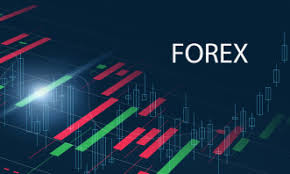Forex trading has become increasingly popular in Nigeria, offering an avenue for individuals to potentially make significant profits by trading currencies. However, getting started in forex trading requires both learning the ropes and having enough capital to begin trading. In this blog post, we’ll break down the costs associated with learning forex trading and starting your journey in Nigeria, estimating a total expenditure ranging between ₦300,000 and ₦500,000.
Understanding Forex Trading
Forex trading, or foreign exchange trading, involves the buying and selling of currencies in the global market. The goal is to profit from the changes in exchange rates between currencies. While it offers the potential for high returns, it also comes with a high level of risk, making proper education and capital crucial.
Cost of Learning Forex Trading
Before diving into the forex market, it’s essential to gain a solid understanding of how it works. Several learning options are available in Nigeria, each with different costs:
- Online Courses: There are numerous online platforms offering forex trading courses. The cost of these courses in Nigeria ranges from ₦20,000 to ₦50,000, depending on the depth and quality of the course. These courses typically cover the basics of forex trading, technical and fundamental analysis, risk management, and trading psychology.
- Local Training Institutes: Some local institutes offer in-person forex trading classes, which can be more interactive and personalized. These courses may cost between ₦50,000 and ₦100,000.
- Mentorship Programs: If you prefer personalized guidance, some experienced traders offer mentorship programs. These programs are more expensive, ranging from ₦100,000 to ₦200,000, but they provide one-on-one coaching and real-time trading support.
- Books and Educational Materials: Supplementing your learning with books and other educational resources is also essential. Budget around ₦10,000 to ₦20,000 for these materials.
Total Estimated Cost for Learning: ₦20,000 – ₦200,000.
Starting Capital for Forex Trading
Once you’ve acquired the necessary knowledge, the next step is to start trading. Your starting capital is the amount of money you’ll use to open and manage trades. The amount needed depends on your trading strategy, risk tolerance, and financial goals. In Nigeria, a reasonable starting capital would be:
- Minimum Capital: ₦100,000 – ₦200,000. This amount is enough to start trading with small position sizes, which is ideal for beginners looking to manage risk.
- Recommended Capital: ₦300,000 – ₦500,000. With this capital, you have more flexibility to trade larger positions and potentially earn higher returns. It also allows you to better manage risks, as you won’t be over-leveraging your account.
Total Estimated Starting Capital: ₦100,000 – ₦500,000.
Additional Costs to Consider
Apart from learning and starting capital, there are other costs associated with forex trading:
- Broker Fees: Forex brokers charge fees in the form of spreads, commissions, or both. While some brokers offer low spreads and commissions, others might charge higher fees. Budget around ₦10,000 to ₦20,000 for broker fees monthly, depending on your trading volume.
- Trading Software and Tools: Some traders invest in advanced trading platforms, charting tools, and signal services. These can cost anywhere from ₦5,000 to ₦50,000 per month.
- Internet and Power Supply: A reliable internet connection and an alternative power supply (e.g., a generator or inverter) are crucial for uninterrupted trading. Monthly costs for these can range from ₦10,000 to ₦20,000.
Total Estimated Additional Costs: ₦25,000 – ₦90,000 monthly.
Summary of Estimated Costs
Here’s a breakdown of the total estimated costs to learn and start forex trading in Nigeria:
- Learning Costs: ₦20,000 – ₦200,000.
- Starting Capital: ₦100,000 – ₦500,000.
- Additional Costs: ₦25,000 – ₦90,000 monthly.
Grand Total: ₦300,000 – ₦500,000 (excluding monthly expenses).
Is Forex Trading Worth the Investment?
Forex trading offers the potential for significant returns, but it’s essential to approach it with caution. The initial investment in learning and starting capital can be substantial, but with the right knowledge, discipline, and risk management, it can be a rewarding venture. It’s important to remember that forex trading is not a get-rich-quick scheme; success requires time, practice, and continuous learning.
Conclusion
Getting started with forex trading in Nigeria involves a significant investment in both learning and capital. The estimated cost of learning and starting can range from ₦300,000 to ₦500,000. While this may seem high, it’s crucial to ensure you’re well-prepared to navigate the volatile forex market successfully. Remember, the key to success in forex trading lies in education, practice, and disciplined risk management
